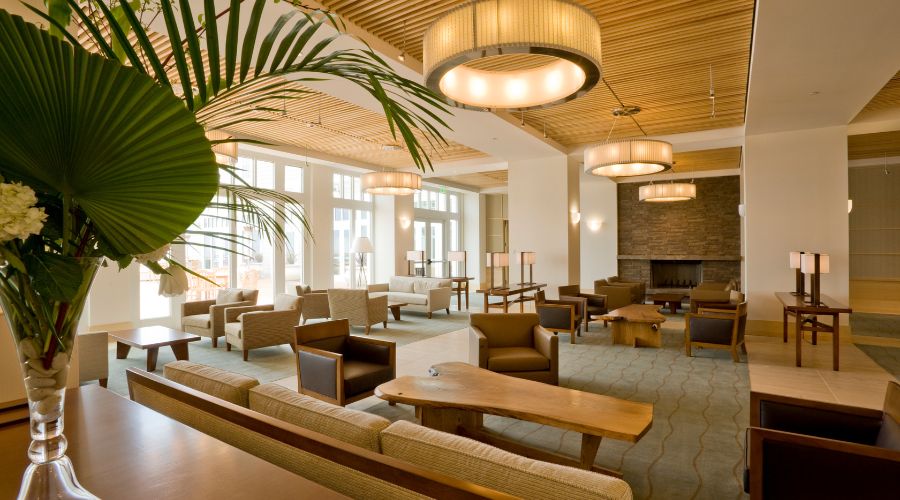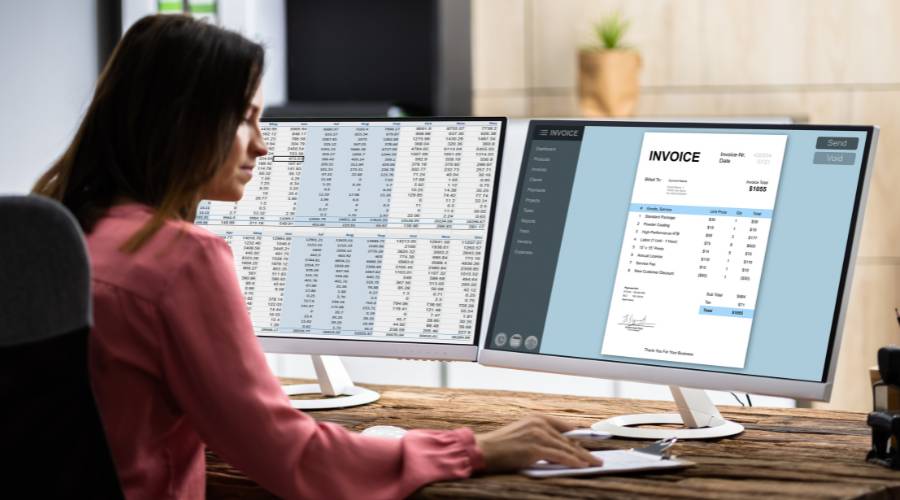In today’s world, a hotel’s online reputation is key to its success. With 95% of travelers checking feedback before booking and nine reviews on average, reputation management is vital. But how do hotels handle this complex digital landscape?
Let’s dive into expert strategies and insights for managing online reputation. We’ll cover how to drive revenue and build guest loyalty. From the basics of reputation management to using the latest technology, this article will help you succeed in the hospitality industry.
Key Takeaways
- Online reputation greatly affects hotel revenue and bookings, with 81% of customers looking at reviews first.
- Good reputation management means watching review sites, answering feedback, and creating a positive online image.
- Using technology and data can improve guest experience and loyalty by offering personalized service.
- Responding well to negative reviews is key to keeping guest’s trust.
- Being consistent in brand messaging and engaging on social media can boost a hotel’s online image and community.

Understanding Hotel Reputation Management Fundamentals
In the hospitality world, managing our hotel’s online image is key. We watch and improve our online presence to show guests we’re great. This means keeping an eye on reviews, and social media, and using feedback to get better. With 93% of travelers checking online reviews first, a good online image is crucial for our success.
Defining Online Reputation in Hospitality
Our hotel’s online image is what guests say about us online. This includes ratings, comments, and how people feel about us. A good image builds trust and helps us show up higher in search results.
The Impact on Hotel Revenue and Success
A good online image can help our hotel’s earnings. A small increase in ratings can let us charge more without losing guests. On the other hand, bad reviews can scare people away, with 52% not wanting to stay at hotels with no reviews.
Key Metrics for Measuring Online Reputation
- Review ratings and scores on platforms like TripAdvisor, Google, and online travel agencies (OTAs)
- Review response rates and timeliness of our hotel’s responses
- Sentiment analysis of guest feedback using natural language processing (NLP) tools
- Net Promoter Score (NPS) to gauge our hotel’s overall performance and guest loyalty
- Website analytics, including repeat visits and booking conversions
By watching these important metrics, we learn a lot about our hotel’s online image. This helps us improve the guest experience and grow our revenue.
The Power of Guest Reviews in Modern Hospitality
In today’s world, guest reviews are key in the hotel industry. People read about nine reviews before booking a hotel. These reviews help build trust and confidence.
57% of reviews are positive, and 43% are negative. This shows how important online reputation is for hotels.
Good reviews can make hotels more attractive. They can even lead to higher prices. A strong reputation can mean more bookings and higher profits.
On the other hand, bad reviews can scare people away. Hotels need to manage their reputation well. This means responding quickly to feedback and fixing problems.
Reviews offer insights to improve hotels. By using this information, hotels can get better and keep guests happy. This helps them stand out in a crowded market.
Online Reputation Management for Hotels: Essential Strategies
In today’s digital world, managing your hotel’s online image is key. Guests often check online reviews and social media before booking. With 81% of them doing so, it’s vital to have a solid online reputation strategy.
Monitoring Review Platforms and Social Media
Keeping an eye on your hotel’s online presence is crucial. This includes sites like TripAdvisor, Expedia, and Booking.com. We need to quickly respond to all reviews, both good and bad.
Being active on social media platforms like Facebook, Instagram, and Twitter is also important. It lets us connect with guests and highlight our hotel’s best features.
Implementing Response Management Systems
Using automated systems to manage reviews can make our job easier. These systems help us handle feedback from various sources efficiently. This way, we can respond to every review, showing our dedication to service.
This approach can also help improve our hotel’s ranking on review sites and search engines.
Building a Positive Online Presence
Creating a strong online presence is essential for improving your hotel’s reputation. We should update our website and social media with interesting content and high-quality photos. Sharing clear information about our amenities and services is also important.
Encouraging guests to leave reviews can also boost our reputation. Since 79% of potential guests are more likely to book a hotel with a higher rating, positive reviews are key.
Leveraging Technology for Reputation Management
In the fast-paced hospitality world, managing your online reputation is key to success. Technology brings many tools to help hotels keep an eye on and improve their online image.
Technology lets hotels gather reviews from many places, like travel sites and social media. With hospitality social listening tools, they can see what people are saying and feel about their stay. This helps hotels spot trends and fix problems quickly.
| Review Platforms | Average Reviews Read by Customers | Percentage of Customers Influenced by Reviews |
|---|---|---|
| TripAdvisor | 9 | 79% |
| 7 | 67% | |
| 6 | 59% |
Online reputation management for hotels also uses systems that send quick, personal replies to reviews. This shows the hotel cares about guests and builds trust.
Also, advanced analytics tools give insights into what guests like and dislike. Hotels can use this info to make their guests happier and fix any online issues.
Creating an Effective Review Response Strategy
In the fast-paced world of hotel review management, creating a strong response strategy is crucial. With 72% of travelers checking reviews before booking, it’s vital to handle both good and bad feedback well.
Best Practices for Positive Review Responses
When guests leave positive reviews, it’s key to thank them and show you’re glad they’re happy. A personalized message that mentions their specific experience can help build loyalty. It also shows your hotel’s dedication to great service.
Handling Negative Feedback Professionally
Dealing with negative reviews can be tough, but it’s a chance to show you care about your guests. When facing criticism, directly address the issues, apologize if needed, and explain how you’ll fix it. Stay calm and try to find a solution that works for everyone.
Response Templates and Guidelines
While personal touches are important, having some standard responses can make things easier. Set clear rules for your team on how to respond, including the tone and details. This saves time and shows your hotel’s commitment to a smooth guest experience.
With a solid review response strategy, hotels can improve their online image, gain guest trust, and boost bookings and revenue.

Enhancing Guest Experience Through Feedback Analysis
Feedback analysis is key to bettering the guest experience at hotels. By using guest surveys and reviews, we get insights that help us improve our services. This makes our hospitality better for everyone.
We need to gather data by asking guests about their stay. This should cover everything from before they arrive to after they leave. It helps us find out what we can do better. We can use the same questions for all guests to make sure we get the same kind of feedback.
After we collect the data, we start to make changes. We use a cycle called Plan-Do-Check-Act (PDCA) to keep improving. This cycle helps us make sure our new ideas work well and make guests happier.
- Plan: We look at the feedback to find out what needs fixing.
- Do: We make the changes and start new ways of doing things.
- Check: We watch how the changes are going and see what guests think.
- Act: We make the changes even better based on what we learn.
By focusing on feedback, we can make our guests happier and improve our reputation. The insights from surveys and reviews help us make choices that our guests will love.
“Feedback is the breakfast of champions.” – Ken Blanchard
In the ever-changing world of hospitality, listening to our guests is crucial. It’s the way we grow and stay trusted in the hotel guest feedback analysis and hospitality online reputation world.
Building Trust and Loyalty Through Online Presence
In today’s world, a hotel’s online image is key to gaining trust and loyalty. By managing your social media well and keeping your brand consistent, you can create a strong online image. This image will attract your target audience.
Social Media Management Techniques
Use platforms like Facebook, Instagram, and Twitter to highlight your hotel’s best features. Share high-quality photos and videos to show what your hotel is all about. Also, run contests to get guests to share their experiences, boosting your online presence.
Brand Consistency Across Platforms
Make sure your hotel looks the same everywhere online, from your website to social media. This consistent look strengthens your reputation and builds trust. Keep your online content fresh and true to your brand.
Engaging with Guest Communities
Interact with your online guest communities by quickly responding to reviews. Show you care about customer service and are ready to solve problems. Also, share special content and offers to keep guests feeling connected and loyal.
By using these strategies, you can build trust and loyalty online. This will help attract more guests and improve your brand’s reputation in the hospitality world.
Implementing Automated Reputation Management Solutions
We know how crucial a good online reputation is for our hotels. That’s why we’ve started using automated reputation management tools. These tools help us keep an eye on many platforms, gather reviews, and create response templates. They also give us important data to make smart choices.
Our automated tools send us alerts right away, analyze feelings, and work well with our current systems. This lets us quickly answer guest feedback and spot trends. It helps us keep our brand image consistent online. Using automation saves us time and makes managing our online reputation more effective.
Automated reputation management is great for any hotel, big or small. It boosts your online presence, collects guest feedback, and improves your reputation. This can lead to more guests and loyalty. With the right tools, we can offer a top-notch guest experience that shines online.
FAQ
What is online reputation management for hotels?
Online reputation management for hotels means keeping an eye on what people say about you online. It’s about responding to reviews and making sure your online image is good. This can help your business, as most people check reviews before booking.
Why is hotel reputation management important?
Managing your hotel’s online reputation is key. It helps people see your hotel in a good light. By managing reviews and social media, you can improve how guests see you. Most people read reviews before booking, so it’s very important.
What are the key metrics for measuring online reputation?
To measure your online reputation, look at rankings, how often you respond to reviews, and what people say. Reviews are very important, with most people reading several before booking. About half of these reviews are positive, and half are negative.
What are the essential strategies for online reputation management?
To manage your online reputation well, automate tasks, use Google Alerts, and make sure all reviews are in one place. Good public relations and a crisis plan are also key. It’s important to be consistent, respond quickly, and use detailed guest profiles.
How can technology help with reputation management?
Technology is very helpful in managing your reputation. Tools can automatically collect reviews, respond quickly, and analyze feedback. This helps you understand what guests want and improve your services.
What is an effective review response strategy?
A good strategy is to quickly respond to all reviews, positive or negative. Most people expect a response within a couple of weeks. For good reviews, say thank you. For bad ones, apologize and explain how you’ll fix the problem.
How can feedback analysis enhance guest experiences?
Analyzing feedback helps improve guest experiences. Use surveys to gather information from guests. This helps you find areas to get better and make changes. This way, you can keep getting better and make guests happier.
What are the best practices for building trust and loyalty through online presence?
To build trust and loyalty, manage your online presence well. Keep your information up-to-date and consistent. Show off what makes you special and be open about mistakes. Talk to guests on social media and encourage them to share their experiences.
How can automated reputation management solutions help hotels?
Automated solutions can make managing your reputation easier. They help track reviews, respond quickly, and give you insights to make better decisions. Look for tools that alert you in real time and work with your hotel systems.



